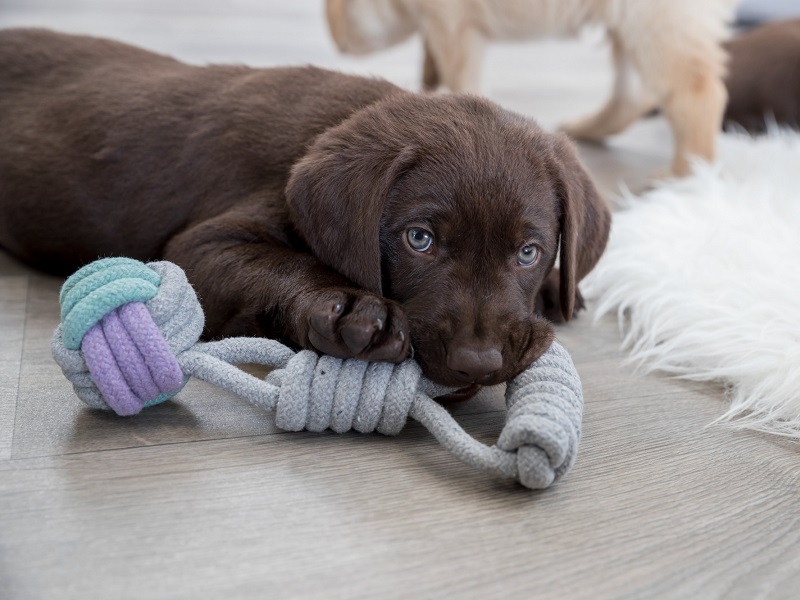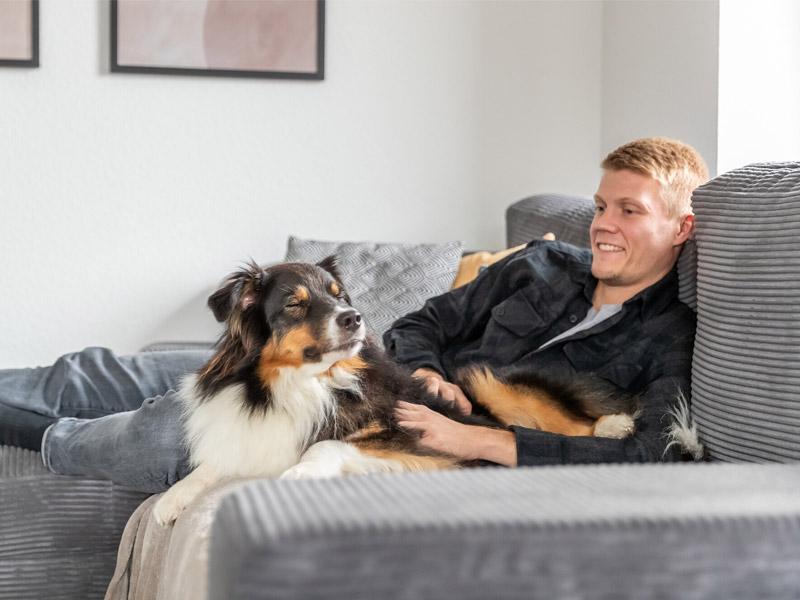The Right Toys for Puppies!
Particularly at the beginning, there is nothing more important for puppies than playing to their heart’s delight, on their own, with other dogs or with their humans. Playing together with your puppy on equal terms offers you the chance to get to know each other and strengthens the bond between dog and owner. In addition, this offers the chance to train future behaviour playfully.
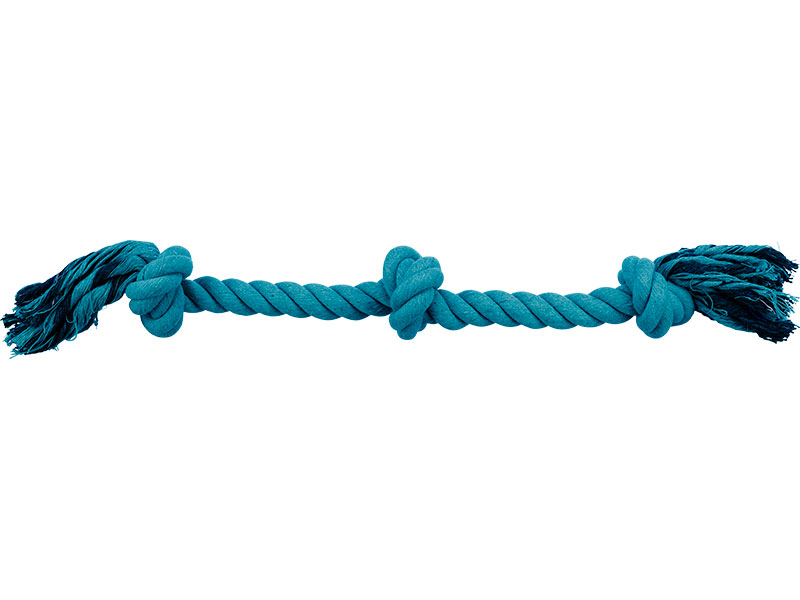
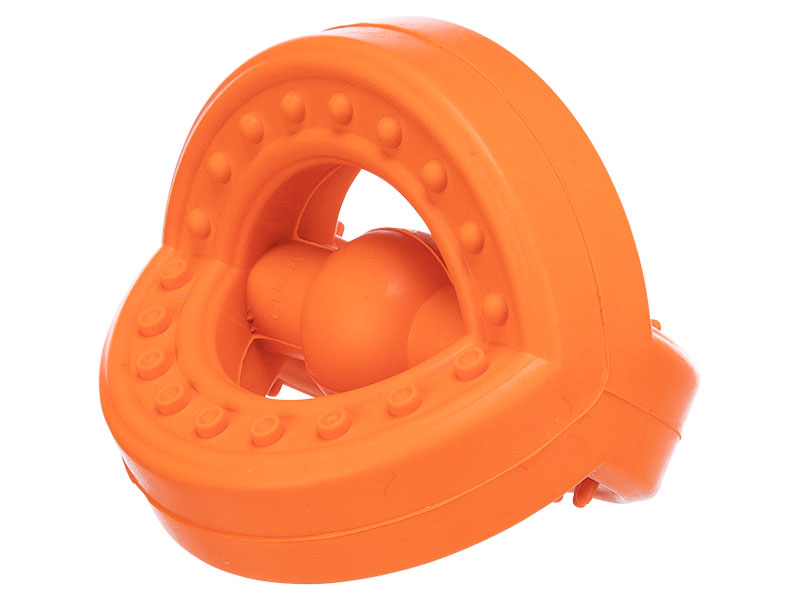
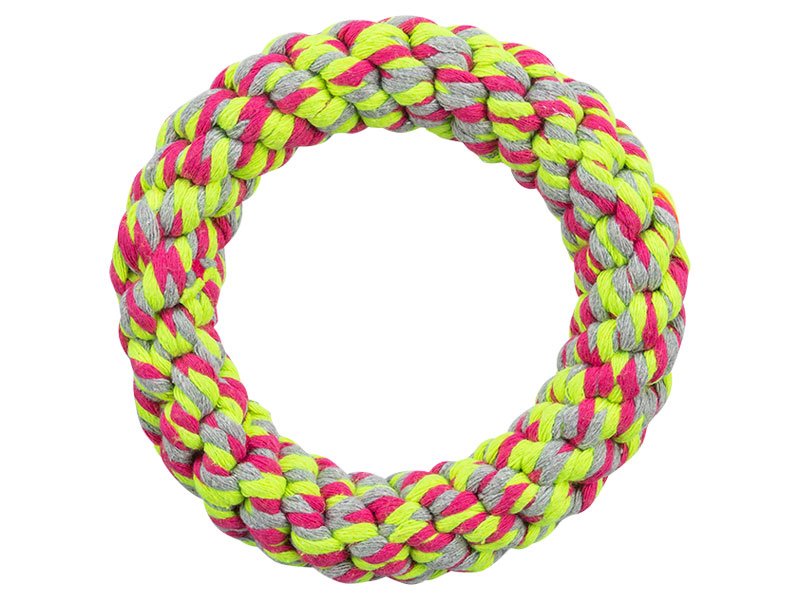
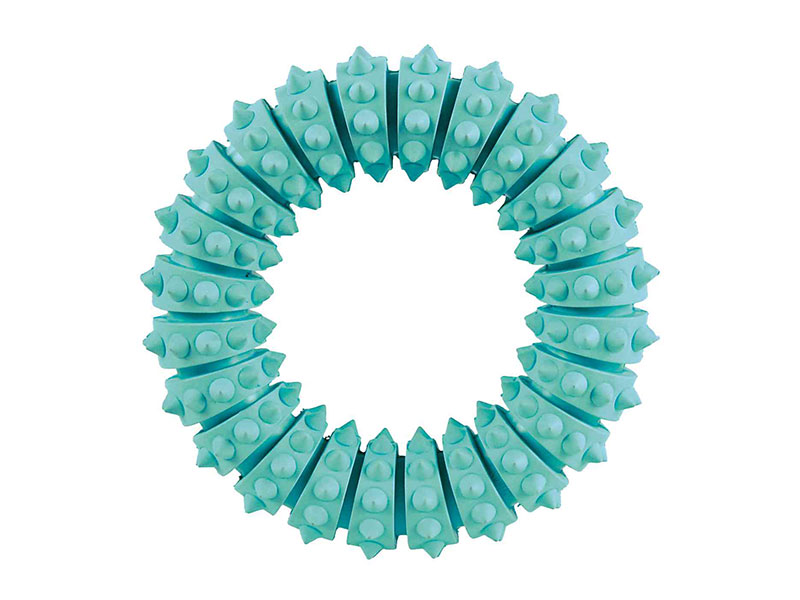
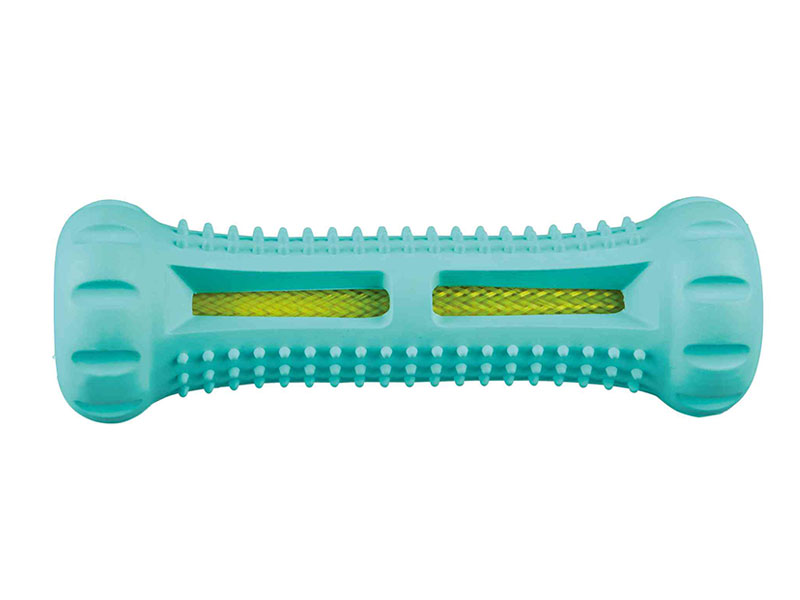
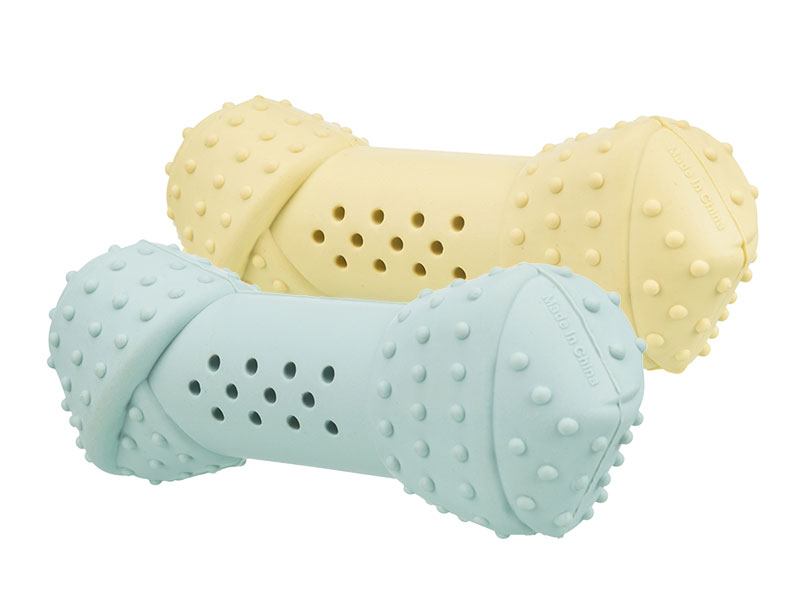
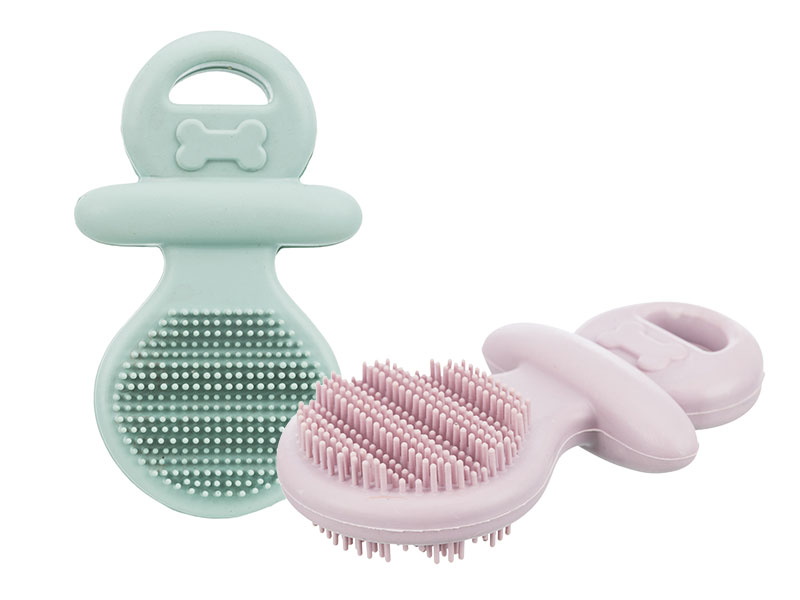
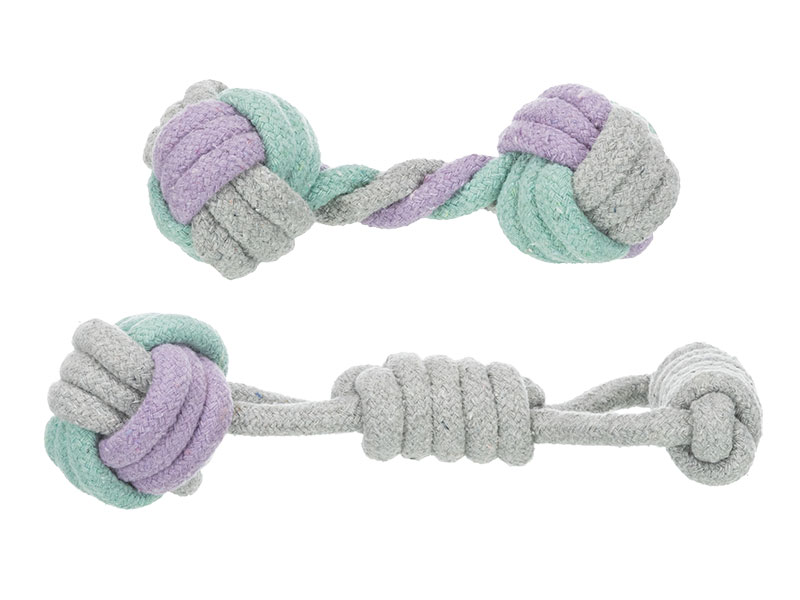
The individual play habits also depend on the breed. For example a retriever, originally trained for retrieving, will be more careful with a toy than e.g. a terrier, whose natural behaviour is independent hunting. It is important to keep these considerations in mind when choosing a suitable toy.
Generally it can be said that puppy toys should be robust but not too hard. Particularly suitable materials are TPR and natural rubber, but also cotton ropes.
You do not really need a squeaker. For most puppies, these sounds are still much too exciting. Pay attention that the toy is large enough so that the puppy cannot swallow it.
A soft plush toy can also be a suitable mate to play with if the puppy likes to cuddle. However, always keep an eye on your pet. Once your pet begins to destroy the toy, put it aside and offer a chewing bone instead. At the end of play time comes the time to tidy up. That keeps the toys special and exciting for a longer time.
Teeth change
In the time when the teeth change (about from the third month onwards), many puppies suddenly start to chew things more and more and “destroy” them. Of course, this behaviour should be stopped, but often the start of the time of tooth change (this can continue up to month 9) is an explanation for this.
Chewing bones e.g. made of rawhide can satisfy the increased need to chew during this time. Toys that can be filled with water or frozen have a cooling effect and massage the gums at the same time to ease the pain when new teeth break through.
In our Junior series, you can find a multitude of toys tailored to the needs of puppies.
